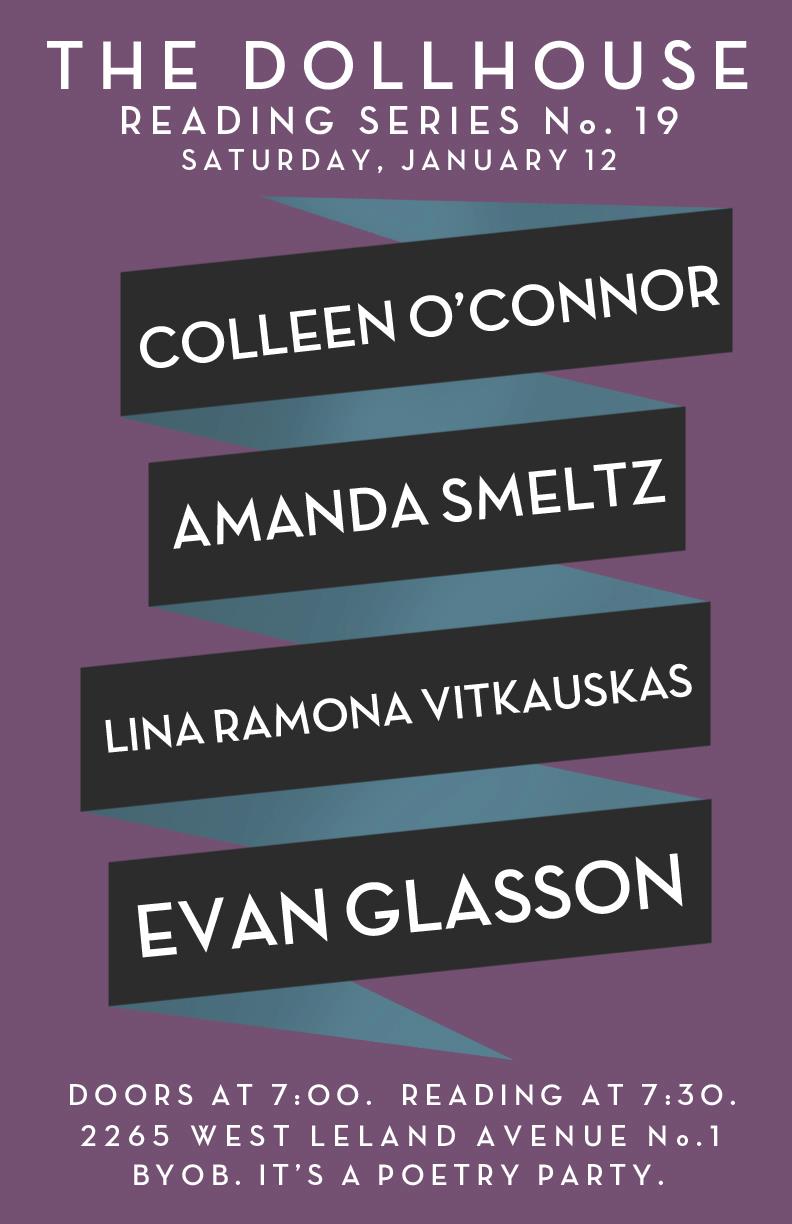
Catching Up With My Cohort
[flickr id=”8386750329″ thumbnail=”medium_640″ overlay=”false” size=”original” group=”” align=”center”]
This past few weeks have been about catching up with my cohort. I hadn’t been to a poetry reading in months, and this past weekend I attended The Dollhouse Reading Series in support of fellow MFA candidate Colleen O’Connor. Meet Colleen O’Connor here in a previous blog post, and read about previous Dollhouse events here, here, here and here. This month’s Dollhouse was superb, as usual, and featured a terrific lineup including Colleen, Evan Glasson, Lina Ramona Vitkauska, and Amanda Smeltz. A good time was had by all, and after the reading we headed out to Richochet’s to continue the celebration.
[flickr id=”8386749639″ thumbnail=”medium_640″ overlay=”false” size=”original” group=”” align=”center”]
I also had two dinner dates with members of my cohort and good friends, Micah McCrary and Tatiana Uhoch. Micah and I headed to Cheesie’s in Lakeview, ate the best darn grilled cheese sandwiches in town, and had a few adult beverages. We got to talking about our thesis—the generation of new material and how we were revising older material. I’m interested to see Micah’s finished thesis, a critical memoir that leaps between Chicago, his hometown of Normal, Illinois, and Prague, where he spent two summers. At least, that’s where he thinks his thesis is going, but you can never be too sure. It’s not over til it’s printed on the fancy paper. I was excited to learn that Micah’s translation work, two poems from a collection of Rilke’s French work called The Roses, will be out this fall from Third Coast. Congrats, Micah!
My second dinner date was with the lovely Tatiana Uhoch, and if you need advice, hard, truthful advice, Tatiana is the person to go to. I’ve been working on a 16-page essay, trying to split it into two shorter essays and recently asked Tatiana if she would read the revisions. I sent the first essay, a 4-page essay dealing with the idea of “fromness,” where we feel from, our limits and boundaries, and the ways in which we are bound and boundless when it comes to being from somewhere. Just describing that idea is a mouthful, and the task of revising has been overwhelming, so Tatiana saying, “Jenn, put it in a drawer,” was the best possible advice I could have received. “Put it in a drawer,” is what you say when someone is just making a larger mess out of a project because they’ve spent too much time with it, have too many voices in their head, and are trying to do too many things. Safely in a drawer, the writing will happen. The time away is needed, and luckily I have honest people in my cohort who aren’t afraid to say “You’re done for now; it’s drawer time.”
